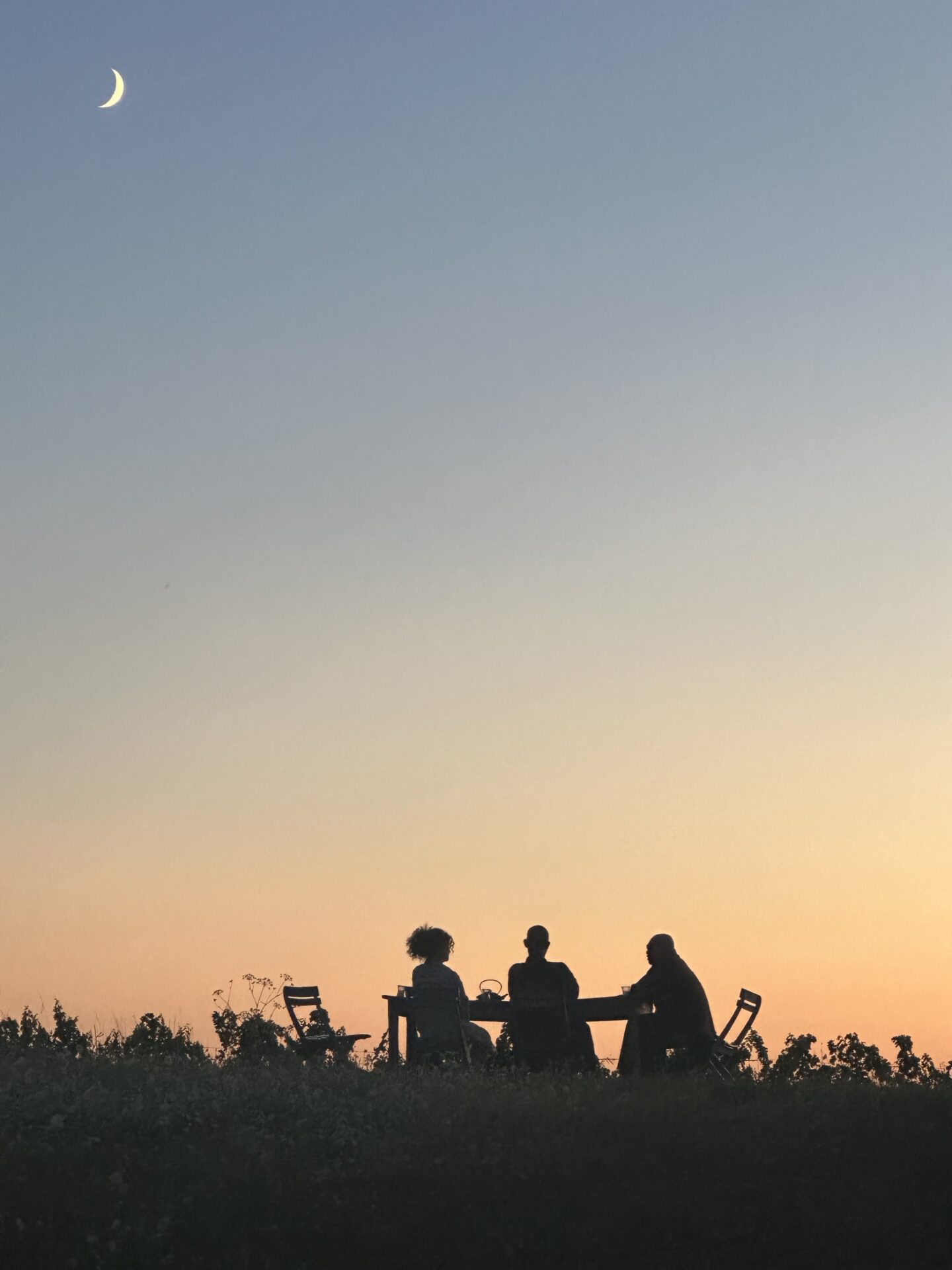Dharma Teacher Marisela Gomez on how turning the upside-down world right side up requires us to resist, maladjust to, and defy the normalization of greed, hatred, and delusion
By Marisela B. Gomez MD on
I hesitate to begin with the words “these are chaotic times …”. More accurate might be: chaotic times are escalating. While the executive and legislative branches of the United States government have jumped into the tyranny soup,
Dharma Teacher Marisela Gomez on how turning the upside-down world right side up requires us to resist, maladjust to, and defy the normalization of greed, hatred, and delusion
By Marisela B. Gomez MD on
I hesitate to begin with the words “these are chaotic times …”. More accurate might be: chaotic times are escalating. While the executive and legislative branches of the United States government have jumped into the tyranny soup, the judicial branch seems to be trying to pause the massive onslaught of violence against humanity.
Regardless of the degree of chaos, we have the tools to absorb and diffuse the suffering of these times. We have many teachings and actions of wise people, present and past, that directly and indirectly instruct us on how to resist, maladjust to, and defy the current manifestations of greed, hatred, and delusion. In doing so, we act from Right View by seeing the causes of conditions in each moment without turning away from the difficult or clinging to the pleasant.1 Right View also facilitates a deep understanding that allows us to act from love. When we practice and cultivate Right View, we immediately turn the upside-down world right side up by seeing the roots of wholesomeness and unwholesomeness and choosing how we will live this life, choosing love.
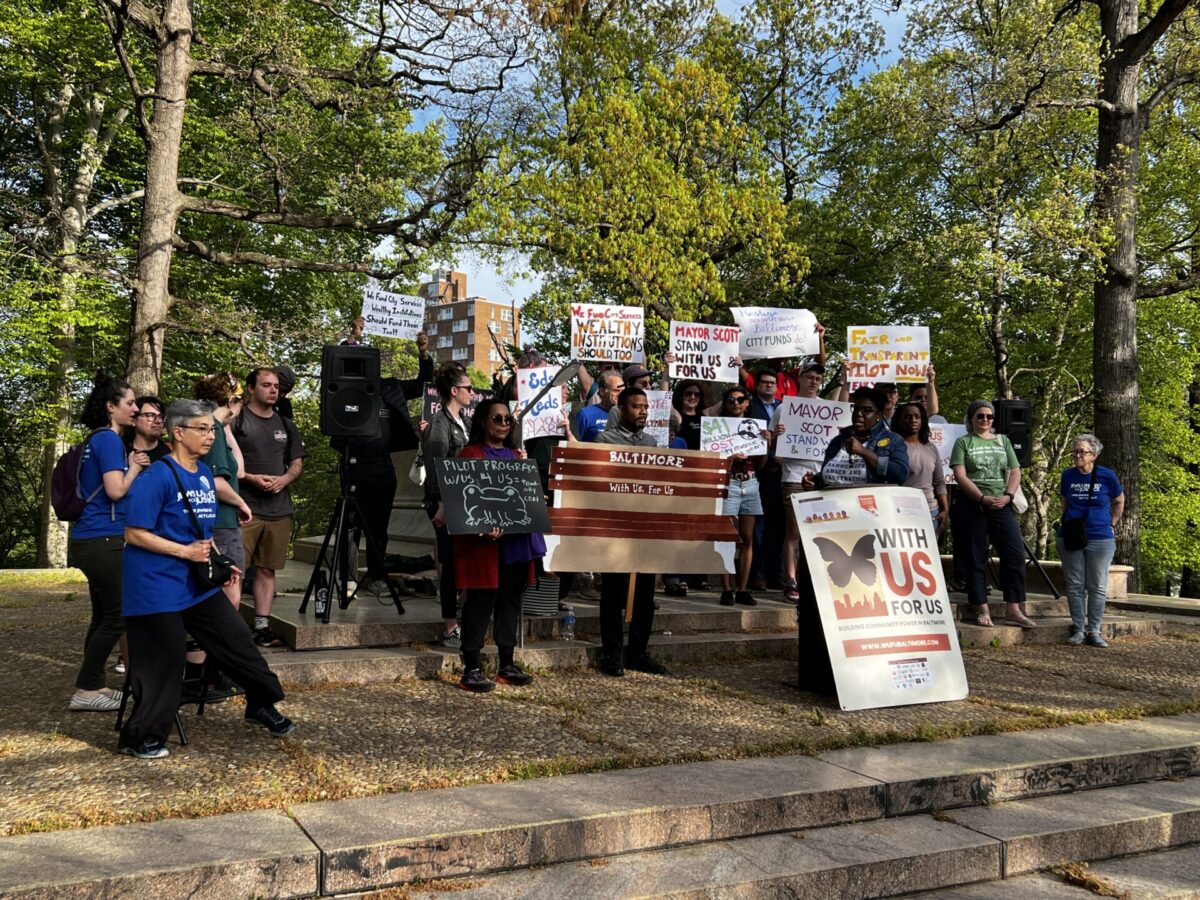
Resisting
Resisting is not futile. It is necessary. We have been resisting for a while now. All of us who practice mindfulness have been resisting this upside-down world. Those of us who gather together to practice in community, who build sanghas or communities of practice, continue to resist. The Venerable Thầy, our teacher Thích Nhất Hạnh—Zen Buddhist monk, author, and peace activist—lived and practiced through the American War in Vietnam. His life shows us how to resist war, an unwholesome manifestation of greed, hatred, and militarism. When Thầy was exiled from Vietnam for resisting the tyranny of war enacted through the United States government and citizens, enabled by nations like China and the Soviet Union with political and military aid, he continued to resist by building sanghas, communities of resistance. Thầy wrote: “The purpose of resistance, here, is to seek the healing of yourself in order to be able to see clearly.”2 Thầy’s conception of sanghas as resistance has spread across the globe through monastic and lay communities in the UK, Africa, Europe, the United States, Canada, Mexico, Central America, South America, the Caribbean, Thailand, Hong Kong, Malaysia, Japan, Korea, India, and other parts of the East.
The precepts of Buddhism, taught by Thích Nhất Hạnh as The Five Mindfulness Trainings, are easily adapted into daily life. The commentary on these Trainings, “Contemplations on The Five Mindfulness Trainings,”3 builds on the original Five Mindfulness Trainings and helps us interpret them across diverse populations. Together, the Trainings guide us to resist: killing; stealing and social injustices; sexual misconduct; lying and violent speech; and intoxication. When we practice the Mindfulness Trainings, we build compassion and understanding; we go against the normalization of the unwholesome actions evident today in the US and worldwide.
The Five Mindfulness Trainings guide us to practice with the antidotes to unwholesome action: reverence for life; generosity and non-exploitation; responsible sexual behavior; deep listening and loving speech for honest communication and reconciliation; and mindful consumption. Living our lives according to these mindfulness guidelines, we resist the behaviors that maintain conflict and hatred in our daily lives and that can lead to social and economic exploitation, injustice, and war and fighting in our households, between communities, and between nations. Mindfulness allows us to notice when we have wrong views of ourselves so we can resist the fragmentation within ourselves and the self-hatred many of us live with, especially people of color and other marginalized groups.
These wrong views cultivate the misperception that others are separate from ourselves. Often in these forms of marginalization, we live as devalued members of society relative to mainstream groups, which are normalized and perceived as superior. By living our lives according to guiding posts like The Five Mindfulness Trainings, we resist the normalized culture of greed, hatred, and discrimination, all of which are fueled by ignorance. By resisting these normalized cultures, we grow the love and kindness necessary for us to be able to live together, even when we are different from each other and don’t fully understand each other. We grow our understanding (Right View) that we are interconnected with each other, despite our differences. We learn to trust our ability to love and grow our hearts across human-made and human-named divisions. We extend ourselves just a little each time; we contest and disentangle the socialized constructs telling us to hate those different from us, to compete for fame and fortune, to believe we can actually find permanent happiness and escape illness, old age, and death. By rebuilding communities rooted in Right View, we begin to turn the world right side up.

Maladjusting
The upside-down world is a product of living a deluded life, of adjusting to the normalized wrong views we have been conditioned with since birth. Since birth, these views have been systematically watered by social and economic structures built on greed and hatred and rooted in ignorance. These structures insist we conform to be a “good” citizen.
Dr. Martin Luther King Jr. called for us to resist these structures and their production of the three evils of materialism, militarism, and racism. He called for us to maladjust to a society that requires us to adjust to such evils: “… in an age amazingly adjusted to war I call upon you to be maladjusted. In an age amazingly adjusted to imperialism and colonialism I call upon you to be maladjusted. In an age amazingly adjusted to hate and malice I call upon you to be maladjusted. My plea to you in America is to be maladjusted.”4 Today, as the United States veers into an authoritarian rule, what might Dr. King say? Given that the same evils he spoke of sixty years ago persist, it’s hard to imagine him not calling on us to continue to maladjust to a society digesting and proliferating daily acts of greed, violence, and discrimination in all forms.
Dr. King also suggested that it was hard to be a Christian in an un-Christian world. He referred to the difficulty of living in a world steeped in hatred and violence and how hard it is to resist these forces by standing up to the government and those who contribute to structures of evil. Dr. King believed in building communities of love—Beloved Communities, communities of resistance. Beloved Communities resist and do not adjust to societies that promote hatred, discrimination, division, imperialism, and militarism.
What does this look like? Being able to touch the calm and beauty in ourselves daily, each of us, begins to rebuild a world of people finding love right here and now. These daily acts of self-nourishment—of ‘I am enough just as I am,’ nurtured by a pause that reminds us of this truth—are a path of rebuilding. We rebuild inside first and become Beloved. With this type of foundation, we are equipped to resist the pervasive culture that pushes us in the direction of separation, consumption, and competition. Building this solid foundation allows us to connect to people, animals, and plant life around us, in our homes, practice centers, a zoning hearing, a park, our workplace, on the street, on the bus, in all our communities. Wherever we engage, we build Beloved Communities. We may move down the street and if our energy is one of non-separation, of Beloved, we build Beloved Community with the person sleeping on the sidewalk. In small and large circles, we bring this energy of awareness of our interbeing nature by using words to bring peace and understanding. We act with clarity and alignment with wholesomeness, whether we agree or disagree, because we are Beloved. We rebuild the world around us one thought, one word, one action at a time to build Beloved Communities everywhere. Thầy called on us to do just this through sangha building as an example of rebuilding the world. Sanghas become Beloved Communities when they “resist[] the speed, violence, and unwholesome ways of living that are prevalent in our society.”5
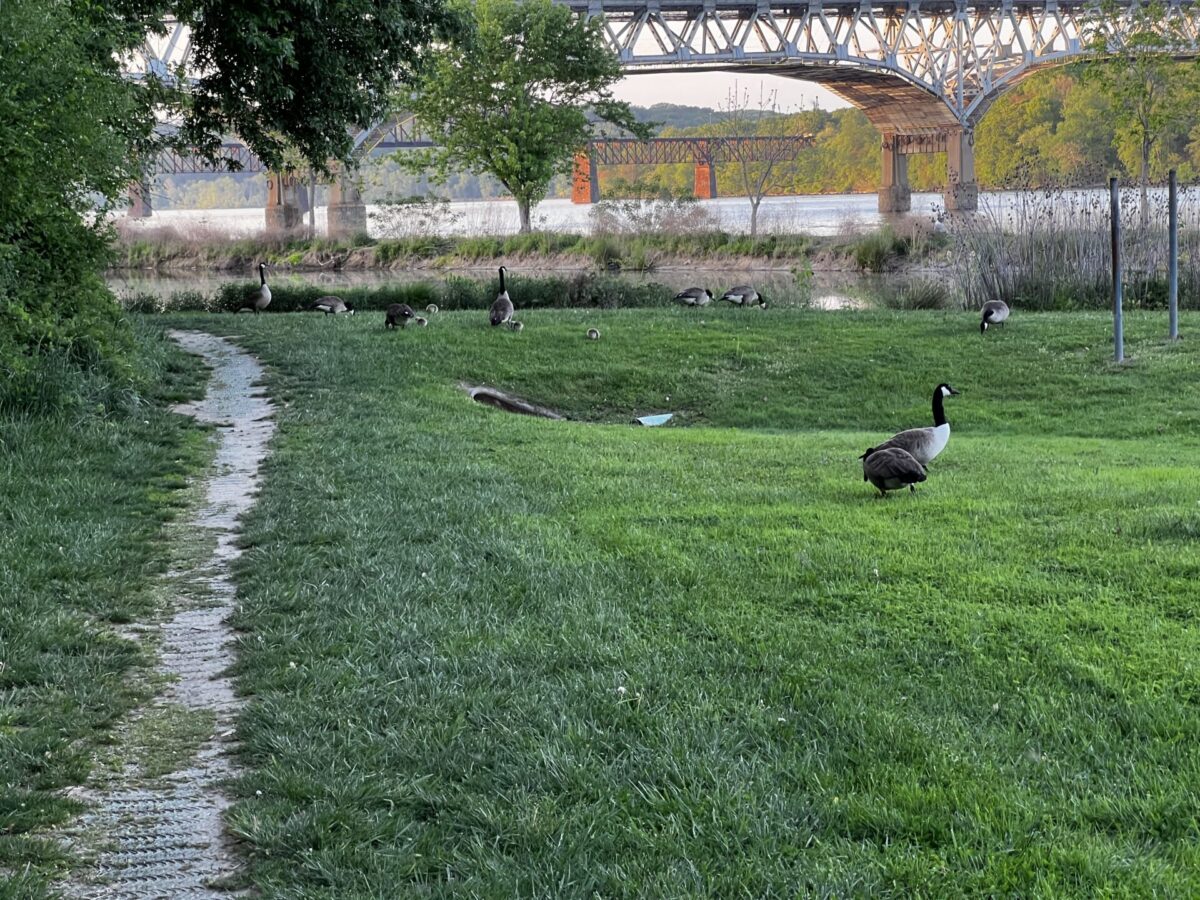
Defying
If we do not resist, we conform to the speed, violence, and unwholesome ways that continue to perpetuate personalities and harmful habits like those of the current “leaders” in the United States and beyond. We continue to normalize this upside-down world. Many practicing Christians also understand the world we currently inhabit to be an upside-down world and practice spirituality to change this. To do this, to make the world right side up, and live as practicing Buddhists and Christians and people of other spiritual denominations, we must defy. As we do so, we clearly see the delusion that abounds in a non-spiritual world. In order to cultivate the spiritual and moral principles of love and spiritual friendship that Thầy and Dr. King spoke to, we must resist the pace of life, a pace that pressures us (knowingly and unknowingly) to conform to the norms of a society that systematically propagates structures of violence, competition, and imperialism.
The society we are experiencing today in the United States, a country on the brink of fascism, did not come to be on January 20, 2025 when the 47th president of the United States was sworn into office. We in the United States have been building a path to where we find ourselves now. We have conformed to a society and benefited from its history of exploitation of those without power. When it did not affect us directly, and at times when it did, we did not say “no.” Generationally, many of us did not say “no” to the numerous government policies that systematized exploitation of people and land for centuries, reaching back to the founding of the United States on Turtle Island.
Dr. Sunita Sah’s research in the field of psychology shows us that many of us are unable to enact a “no” even in situations that go against our values.6 She introduces a definition of “defy” that may help us all enact our “no”: “to act in accordance with your true values when there is power to do otherwise.”7 Such a definition may move us forward to affirm our values and understand that enacting a “no” or “defying” is the right thing to do—after we have evaluated the appropriate time and beneficial effect. She further reports that when we assume responsibility for a person or situation, we are more likely to defy any authority that pushes us to conform to behaviors against our values.
In many stories of the Buddha teaching new and existing disciples, the listener is quoted as saying: “… [he has] made the Dharma clear in many ways, as though he were turning upright what had been overthrown, revealing what was hidden, showing the way to one who has lost, or holding up a lamp in the dark so those with good eyesight can see forms ….”8 The insinuation here is that the teachings and practices of Buddhism, like Christianity, help us to see clearly what is ours to do to make the world a better place for us and future generations.9 This requires defying the norms that allow each generation to be inculcated and ultimately succumb to the same beliefs and practices that continue structures of separation. By defying, by saying a mindful “no,” we can build small and large communities of peace, kindness, happiness, and understanding, here and now.

Now is always the time
With so many teachings and teachers accessible to us, what gets in the way of enacting a right-side-up world, now? Why do we continue to conform to the ways of a world that feed greed, hatred, and ignorance? The pace of our lives is one answer. Slowing down this pace is a first step. Slowing down, pausing, allows us to be present for what is with us—in body and mind as well as in our external environment. In this process of noticing, we see clearly and we make decisions in line with our values, with compassion and clarity. We rediscover how we can change moment to moment, over and over again, as we notice our thinking, words, and actions. Clear seeing helps us notice that we need to be in community with others who are also pausing. We notice this helps reinforce our own practices of slowing down when we get caught up again. We discover friends who are also attempting to resist, maladjust, and defy the socially constructed norms of distraction, competition, and extraction. Spiritual friends and communities of resistance help us to withstand the pressure to conform. Communities of resistance remind us that happiness is possible and that happiness does not have to harm others.
Shakyamuni Buddha did not conform to the glitter of the life set forth for him as a young prince. All he had to do was comply. But that was not his true path, and he made a choice. He defied this life of comfort and sought a world beyond old age, illness, and death. Jesus also did not conform to the rules of the day. He knew there was more to our humanity than greed, hatred, and division. For his defiance he was crucified on a cross, belittled, and mocked with a crown of thorns. Often, there are repercussions for resisting and defying, for maladjusting. No doubt as we have practiced our own acts of resistance and defiance, we have experienced these impacts.
Our resistance is a positive act for freedom—freedom to live into our values. We practice pausing to remember our aspiration to be kind, to look deeply, to understand, and to offer the compassion capable of breaking the chains that bind us to this normalized structure of separation, discrimination, and contempt for those different from us. Our insistence on resisting the structures of oppression is an act in solidarity for all those who live in circumstances where saying “no” is not possible. We resist for them.
We do not act alone for freedom; there is always someone else, somewhere, also acting for freedom. Whether quietly meditating to open our hearts, speaking kind words to a stranger, writing a letter to support someone different from us, carrying a sign that resists hatred, or being arrested for refusing to support tyranny, by resisting we join the collective energy of all those who have ever defied and all those who will defy in the future, to manifest a world that is kind and true. When we resist, we live into our Buddha nature, our Jesus nature, our spiritual nature, our true nature.
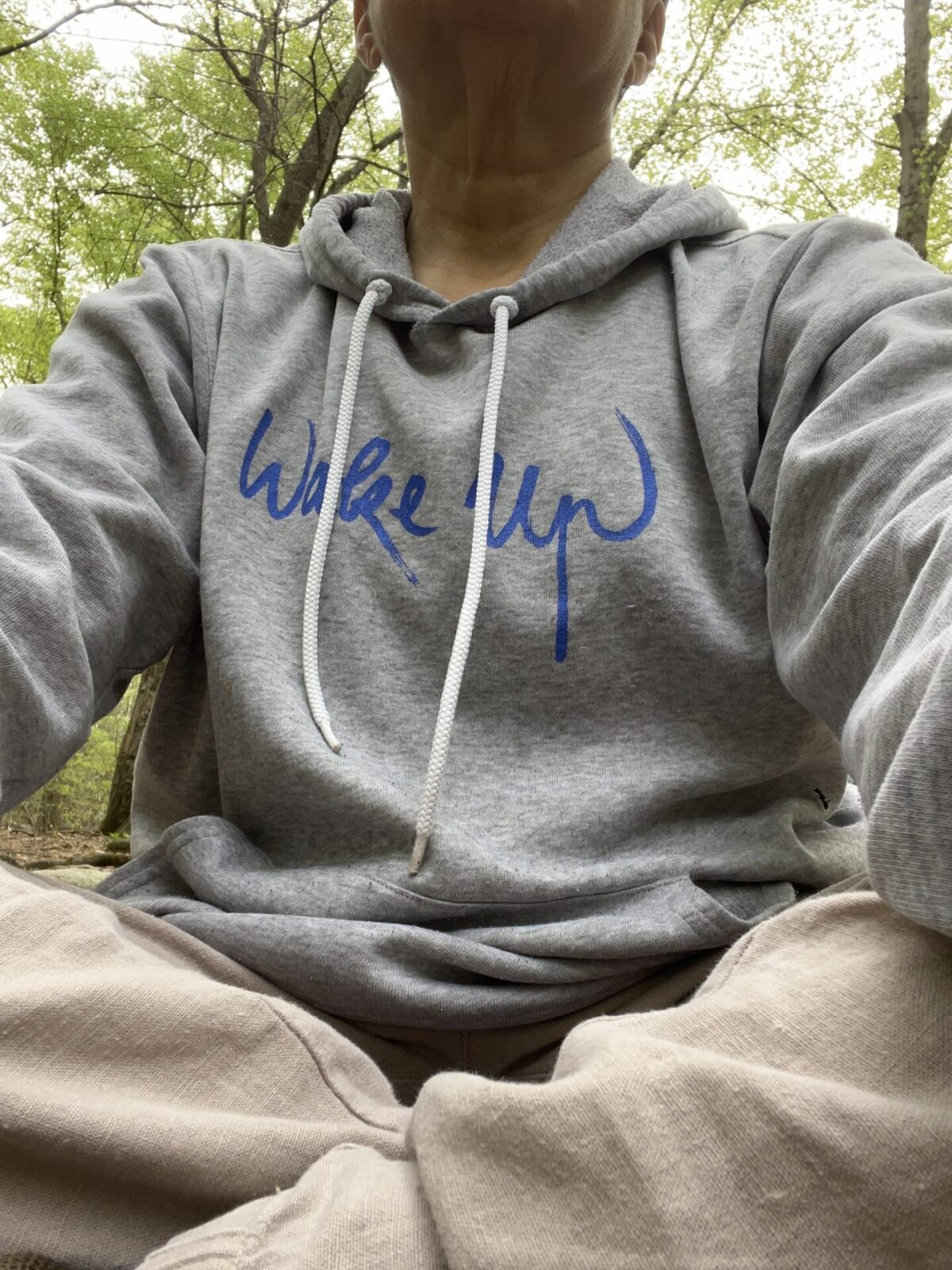
Let us resist, defy, and maladjust together today, in a country and world that is breaking hearts and homes apart by displacing people simply because they are different. Now is the time to wake up together, to wake up from the illusion that what happens to queer and trans folks does not affect you. Now is the time to wake up and openly say “no” to the genocide happening in Gaza. Now is the right time to say “not on my watch” when the president of the US allows an unelected, wealthy, white male to eviscerate the federal government workforce and denounce the rule of law via the judicial system. Now is definitely the time to defy a government and its foot soldiers who target immigrants and refugees who, like the original immigrants and refugees to the US, continue to help build the country into the power it is today. Yes, now is the time to wake and act into resisting an authoritarian regime that is attempting to hold superior fame, wealth, greed, and hatred. In a right-side-up world, we wake up over and over again from the illusion that we are separate, better than, less than, or equal to each other. We have the power to do this because we are interconnected and bring each other forward in each moment in space and time. We are already enough to do just that. What are we waiting for?
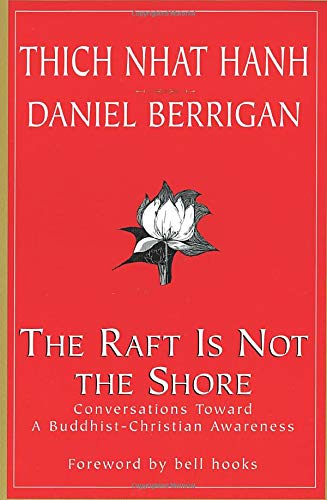
1 Right View is defined by different teachings in Buddhist scriptures: it is understanding life exists according to the three Dharma seals of impermanence, non-self, and nirvana; when we have Right View, we understand life according to The Four Noble Truths of ill-being, its path, and the cessation of ill-being and its path. Having Right View allows us to see things as they really are, note their causes, and understand that we have choice in every moment.
2 Thích Nhất Hạnh, Daniel Berrigan, The Raft Is Not the Shore: Conversations Toward a Buddhist-Christian Awareness (Maryknoll: Orbis Books, 2001), 129.
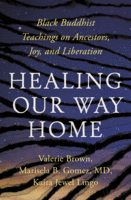
3 Valerie Brown, Marisela B. Gomez, MD, Kaira Jewel Lingo, Healing Our Way Home: Black Buddhist Teachings on Ancestors, Joy, and Liberation (Berkeley: Parallax Press, 2024), 206-211. https://www.arisesangha.org/arise-5mt-contemplations
4 The Martin Luther King, Jr. Center for Nonviolent Social Change, “MLK: Paul’s Letter to American Christians.” YouTube video, accessed March 16, 2025.
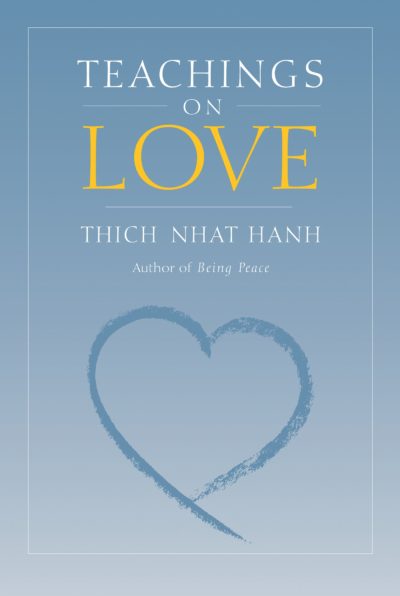
5 Thích Nhất Hạnh, Teachings on Love (Berkeley: Parallax Press, 2002), 142.
6 Sunita Sah, Defy: The Power of No in a World that Demands Yes (London: One World, 2024).
7 Ibid.
8 Bhikkhu Bodhi, In the Buddha’s Words: An Anthology of Discourses from the Pali Canon (Somerville: Wisdom, 2025), 250.
9 In this writing I refer to Buddhist and Christian spirituality based on my lived experiences of practicing in these spiritual traditions.


